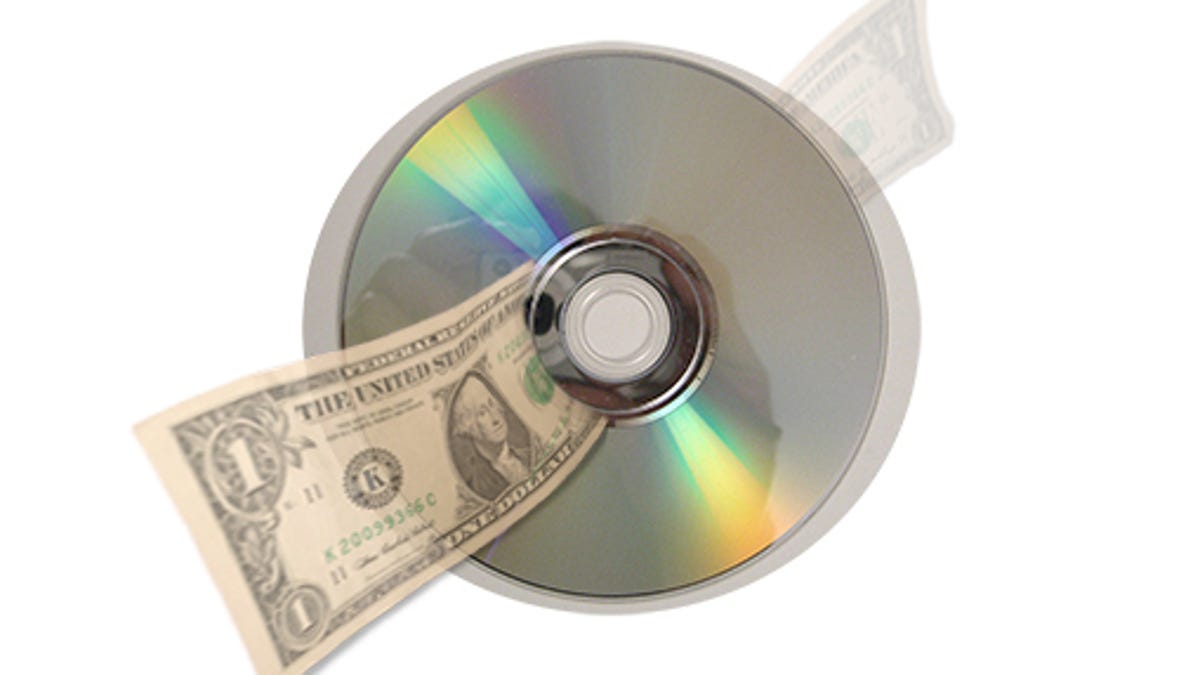Why buy music when you can stream it?
Today's fans have a different "relationship" with artists, one not based on buying music.

I guess it's safe to assume Adele and Coldplay are making decent livings in the music business, but I wanted to talk with an average band to see how they were doing. What sort of income did they see from Spotify, Pandora, and YouTube, vs. selling CDs or downloads? So I chatted with Phil Metzler, from Just Off Turner, and he was willing to share some income numbers. The band has been featured on soundtracks on shows from ABC, MTV, E!, and Oxygen; they've toured the U.S., Europe, Brazil, Australia, and the U.K.
They made three albums and one EP. The first two albums cost around $3,000 each to produce. The third was cheaper; it was $1,200. They scored 1.5 million plays of their tune, "How Much It Hurts" when John Mayer featured it on his MySpace page in 2007-08. That song was from their first album, "The Long Walk Back," but album sales slacked off after that. The band now averages $180 a month from Pandora, Rhapsody, and other forms of streaming digital distribution; YouTube earnings from 6/30/12 to 3/30/13 totaled $9.83. Things perked up when we looked at the iTunes numbers -- Just Off Turner earned $14,352 in seven years. For now, the band mostly plays dates in California, but few local gigs pay more than $40 per show. They recently played a festival and were paid $700, but that was at the high-end for the band. Metzler says the band is more popular than ever, but earnings remain slim; my best guess is that might have something to do with the fans' access to free or low-cost streaming. Metzler is doing what he can to lower the costs of making recordings, but I wonder why more fans don't feel any obligation to support their favorite bands by buying their music.
Then again, some big-name bands, such as the Black Keys, have limited use for Spotify. The band's drummer Patrick Carney said, "It's becoming more popular, but it still isn't at a point where you can replace royalties from record sales with royalties from streams." At the New Music Seminar, I heard one guy on "The Independent Label Movement" panel claim that, even when a song of his was streamed 100,000,000 times, the income was still not all that significant. It's a great marketing tool, but they didn't see a corresponding bump in record sales, so even when you win, you lose. Streaming income doesn't pay the rent.
If you want to know why so many bands are releasing vinyl, ponder what Damon Krukowski of Galaxie 500 and Damon & Naomi said in a Pitchfork article, "Since we own our own recordings, by my calculation it would take songwriting royalties for roughly 312,000 plays on Pandora to earn us the profit of one -- one -- LP sale." Right, bands may actually want to make a few bucks from music, maybe that's why vinyl is coming on strong, and you can't stream an LP. Krukowski also said, "Pressing 1,000 singles in 1988 gave us the earning potential of more than 13 million streams in 2012."
Of course, some folks who listen to streaming services still buy a lot of music. That's great, and streaming may be a big help in discovering new music, but the question remains, if you can hear what you want, anytime you want, on Spotify, YouTube, or Pandora why buy music? Is that a good thing for bands? I don't think so, but I'd love to hear what you think. Share your thoughts in the Comments section below.

